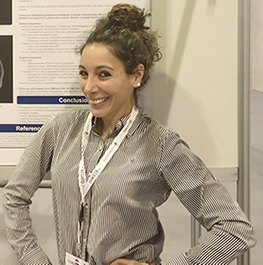
Breadcrumb
- News and Events
- News
- Content
- A first large detailed description of the worldwide 2022 monkeypox outbreak
null A first large detailed description of the worldwide 2022 monkeypox outbreak
MUHC physicians made important contributions to a new article published in the New England Journal of Medicine
Montreal, July 22, 2022 - A monkeypox outbreak is currently occurring in countries worldwide outside of the regions of Africa where previous outbreaks have occurred. Noticed in the UK in May 2022, the disease was soon reported in Montreal, which became the epicentre of the North American outbreak. Physicians at the McGill University Health Centre (MUHC) were among the first to identify cases.
Clinicians from 43 sites in 16 countries collaborated in an international effort to describe the clinical characteristics and outcomes of confirmed monkeypox infections. Their findings are published in The New England Journal of Medicine. RI-MUHC researchers and MUHC clinicians Dr. Sapha Barkati, co-first author of the study, and Dr. Marina Klein, co-senior author, contributed many cases to this first large detailed description of the worldwide monkeypox outbreak.

“This outbreak is ongoing and the number of cases is likely underestimated as many cases go unreported or unrecognized. Physicians in most countries have never seen monkeypox and the disease can manifest itself in different ways,” says Dr. Barkati, who is an associate investigator in the Infectious Diseases and Immunity in Global Health Program at the Research Institute of the McGill University Health Centre, as well as an assistant professor in the Department of Medicine at McGill University and the educational director of the J.D. MacLean Centre for Tropical Diseases at McGill University. “Rapid and timely knowledge translation is key to raise global awareness of the diagnosis and management of monkeypox, an infectious disease that was unknown to most of us until recently.”
The authors of the article report on 528 infections acquired between the end of April and the end of June 2022. Their data indicate transmission was suspected of being mainly through close physical contact and sexual activity. Cases were primarily in men who have sex with men, but heterosexual transmission was also reported.
Rash was a common feature (95%) with usually less than 10 lesions and anogenital involvement was frequent (73%). Fever and swollen lymph nodes occurred in 63% and 56% of cases, respectively. The clinical presentation was generally mild to moderate, with 13% of patients requiring hospitalization. No deaths were reported.
Monkeypox DNA was detected in 29 of the 32 seminal fluid samples analysed, but whether monkeypox is spread directly via semen as well as from close physical contact during sexual activity is still not clear.

Other sexually transmitted infections were diagnosed in a third of the patients and 41% of cases occurred in people living with HIV.
“Because monkeypox may present with a variety of clinical manifestations, health care professionals need to be educated to recognize, diagnose, and manage cases. Early recognition and diagnosis by frontline health care workers and community-led efforts are paramount to contain the outbreak in concert with public health interventions,” says Dr. Klein, who is a senior scientist in the Infectious Diseases and Immunity in Global Health Program at the RI-MUHC, as well as a professor in the Department of Medicine at McGill University and the research director of the MUHC Chronic Viral Illness Service.
About the study
The study Monkeypox Virus Infection in Humans across 16 Countries — April–June 2022 was conducted by John Patrick Thornhill, Sapha Barkati, Sharon Walmsley, Juergen Rockstroh, Andrea Antinori, Luke Barrett Harrison, Romain Palich, Achyuta NoriIain Reeves, Maximillian S Habibi, Vanessa Apea, Christoph Boesecke, Linos VandekerckhoveMichal Yakubovsky, Elena Sendagorta, Jose Luis Blanco, Eric Florence, Davide Moschese, Fernando Manuel Maltez, Abraham Goorhuis, Valerie Pourcher, Pascal Migaud, Sebastian Noe, Claire Pintado, Fabrizio Maggi, Ann-Brit Hansen, Christian Hoffmann, Jezer Ivan Lezama, Cristina MussiniAnnamaria Catellan, Keletso Makofane, Darrell Tan, Silvia Nozza, Johannes Nemeth, Marina B Klein and Chloe M Orkin.
DOI: 10.1056/NEJMoa2207323
Media contact
Fabienne Landry
Communications coordinator, Research, MUHC
Fabienne.landry [at] muhc.mcgill.ca